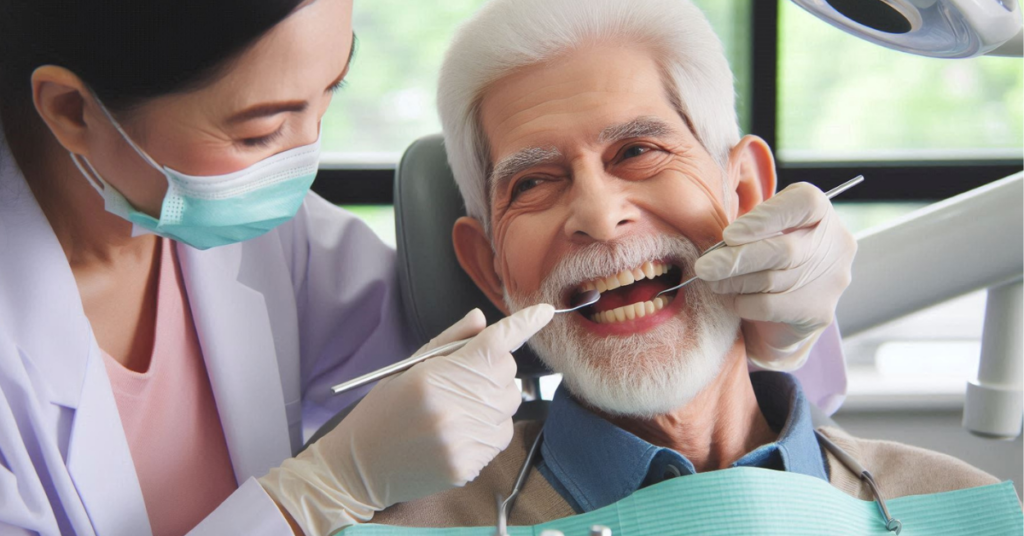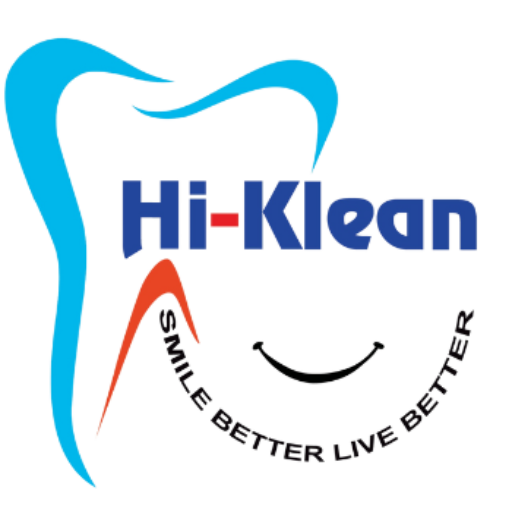
The Importance of Geriatric Dental Care for Aging Smiles
Introduction
Aging processes a lot on the body, including the teeth and gums. Extra care needs to be exercised by the teeth and gums to avoid such regular issues as tooth decay, gum disease, dry mouth, and loss of teeth. Dental issues among the elderly are usually not addressed, causing complications that impair the general well-being and lifestyle of the affected individual.
Geriatric dental treatment for the elderly preserves the bright smile in good health while simultaneously fighting risks associated with aging. These risks include poor nutrition, speech difficulties, and even systemic diseases. This blog will examine how senior dental care is crucial, the hurdles some of these elderly individuals face, and how to keep that bright smile flourishing with tips for maintaining good oral health.
Table of contents
- Why Geriatric Dental Care Matters
- The Link Between Oral Health and Overall Health
- Common Dental Issues in Seniors
- Challenges in Dental Care for Seniors
- Tips for Maintaining a Healthy Smile
- Conclusion
- FAQ
Why Geriatric Dental Care Matters
Healthy oral health in older adults is important for:
- Prevention of Tooth Loss: Tooth loss affects chewing function, speech, and self-esteem.
- Reduce the Risk of Infections: Gum disease and tooth decay may lead to infections and other difficult situations.
- Proper Nutrition: Missing teeth or pain in the mouth can prevent eating nourishing foods.
- Increased Self-Esteem: A healthy smile creates better confidence and health.
Routine dental visits at dental hospital in Kottayam ensures that the elderly have a pain-free, functioning mouth, which leads to an improved quality of life.
The Link Between Oral Health and Overall Health
Oral health is inextricably linked to overall health. Inadequate dental care can lead to a number of systemic diseases, including:
- Heart Disease: Gum infection bacteria may enter the blood, promoting inflammation and heightening the risk of heart disease and stroke.
- Diabetes: Gum disease may complicate diabetes by making it more difficult to regulate blood sugar.
- Pneumonia: Oral bacteria may be transferred into the lungs through inhalation, causing respiratory infections.
- Alzheimer’s Disease: Research indicates a connection between long-term gum disease and the risk of mental decline.
Follow-up dental care and proper oral health habits with Geriatric Dentists in Kottayam may help to prevent these severe health conditions.
Common Dental Issues in Seniors
Gum Disease (Periodontitis):
- A major cause of tooth loss in older adults.
- Symptoms are red, inflamed gums, bleeding, and bad breath.
Tooth Decay:
- Dry mouth (medication-induced) raises risk of cavities.
- Seniors can have old fillings that require replacement.
Tooth Loss:
- Can result in eating, speaking, and low self-confidence problems.
- Dentures, bridges, or implants might be required.
Oral Cancer:
- More prevalent in older adults.
- Early detection is aided by regular dental exams.
Dry Mouth (Xerostomia):
- Frequently a result of drugs used to treat high blood pressure, depression, or other disorders.
- Results in discomfort, dysphagia, and enhanced cavity risk.
Challenges in Dental Care for Seniors
- Limited Dexterity and Mobility
Arthritis prevents seniors from brushing and flossing effectively. Adaptive devices such as electric toothbrushes and floss pickers can assist.
- Cognitive Impairment
Alzheimer’s and dementia patients can forget to brush their teeth. Caregivers must step in to help with daily oral care.
- Side Effects of Medications
Most older adults have medications that create dry mouth and, in turn, a high risk of tooth decay. Avoiding dehydration and the use of saliva substitutes is beneficial.
- Financial Restriction
The cost of dental care may be prohibitive, and Medicare excludes routine dental visits. Seeking discounted dental care opportunities, like clinics or dental discount plans, is essential.
- Fear and Anxiety
Some older adults do not want to see the dentist because of previous traumatic experiences. Patient-centered strategies and gentle dental care can allay anxiety.
Tips for Maintaining a Healthy Smile
✅ Regular Checkups – Go to the Geriatric Dental clinic in Kottayam at least every six months for cleanings and check-ups.
✅ Brushing & Flossing Daily – Brush with fluoride toothpaste and a soft-bristled brush. Flossing prevents gum disease.
✅ Proper Hydration – Drink plenty of water to avoid dry mouth and promote healthy teeth.
✅ Balanced Diet – Consume calcium-rich foods such as dairy, leafy greens, and nuts to make teeth stronger.
✅ Assistive Tools – Electric toothbrushes, water flossers, and easy-grip handles can be helpful in oral care.
✅ Stop Smoking – Smoking can lead to gum disease, oral cancer, and tooth loss.
✅ Watch for Changes – Inform your dentist about any unusual pain, swelling, or changes in oral health.
If you’ve been considering orthodontic treatment in Kottayam, take the first step today—a healthier, more confident smile is just around the corner!
Conclusion
Geriatric dental care in Kottayam is critical to maintaining oral health, preventing illness, and overall quality of life. As we get older, having good oral hygiene, regular visits to the dentist, and meeting such issues as dry mouth and gum disease can provide for a long, healthy, and confident smile.
KEEP YOUR SMILEHEALTHY AS YOU AGE!
Frequently Asked Questions
How often should a senior citizen visit the dentist for checkups?
Is gum disease treatable in older individuals?
What are the best prevention methods for dry mouth?
Author
Hi-Klean Dental Clinic in Kottayam is a leading dental care provider known for its compassionate and expert services. Led by Dr. Sijo P Mathew, the clinic has earned a reputation for prioritizing patient well-being and providing comprehensive dental care. The clinic’s team of dedicated professionals prioritizes patient comfort and satisfaction, and their state-of-the-art facilities are meticulously maintained to ensure hygiene and safety. They offer a wide range of services, from routine checkups and cleanings to advanced procedures, and their experienced dentists and dental hygienists provide individualized treatment for each patient’s specific needs. Hi-Klean Dental Clinic is committed to helping patients achieve optimal oral health through gentle care and exceptional results.
